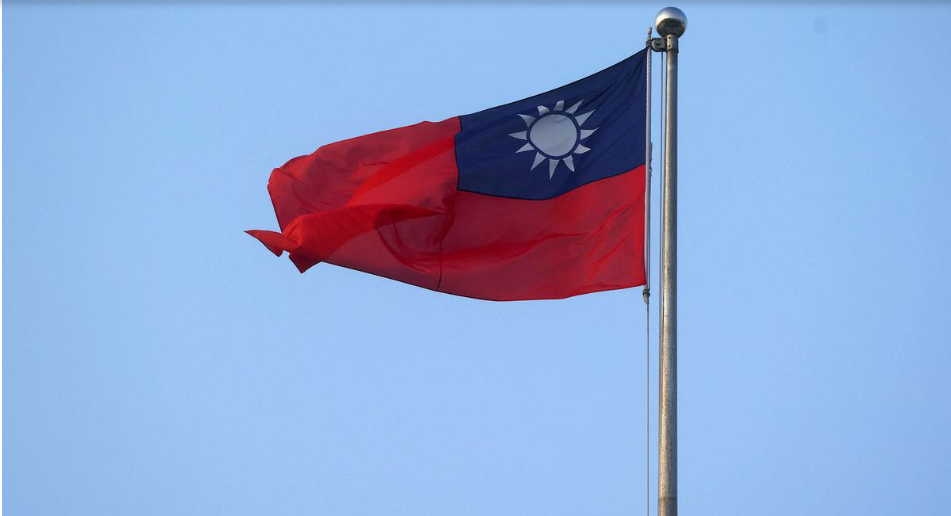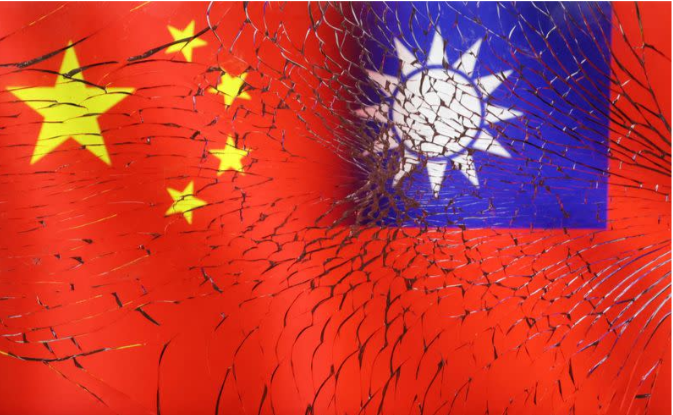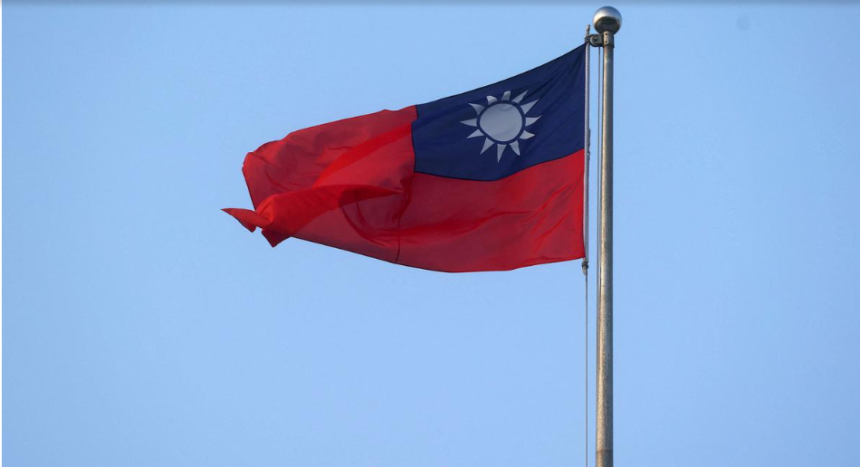1. Introduction: Escalating Tensions Over Taiwan
China Condemns geopolitical landscape in the Indo-Pacific continues to heat up as China sharply condemns the recent U.S. military aid package to Taiwan, worth $571 million. Labeling Taiwan as a “red line” that must not be crossed, Beijing has reiterated its strong stance on its sovereignty over the island. The announcement of the aid has reignited tensions between the U.S. and China, with global powers closely watching the unfolding developments.
2. The U.S.-Taiwan Military Aid: Key Highlights
2.1. Nature of the Military Aid
The military assistance includes advanced missile defense systems, surveillance equipment, and training to bolster Taiwan’s self-defense capabilities.
- Objective: Enhance Taiwan’s ability to deter potential aggressors.
- Focus: Protect critical infrastructure and safeguard Taiwan’s airspace and maritime borders.
 For the more information click on this link
For the more information click on this link
2.2. Timing of the Announcement
The announcement comes amid increasing Chinese military activities near Taiwan, including drills and air incursions into Taiwan’s air defense identification zone (ADIZ).
- Seen as a strategic move by the U.S. to reaffirm its commitment to Taiwan amidst growing Chinese assertiveness.
3. China’s Reaction: A Firm Stance
3.1. Beijing’s Condemnation
China’s Foreign Ministry issued a scathing rebuke, calling the U.S. military aid a direct threat to its national sovereignty.
- Official Statement: “Taiwan is an inalienable part of China. The U.S. has once again interfered in our internal affairs and undermined regional peace.”
3.2. Warnings of Retaliation
China has vowed to take “necessary measures” to protect its territorial integrity and sovereignty, although specifics remain undisclosed.
- Potential responses could include military drills near Taiwan, sanctions against U.S. entities, and bolstering China’s diplomatic alliances.
3.3. Red Line Declaration
China reiterated its declaration of Taiwan as a “red line” that no foreign power should challenge, emphasizing its resolve to unify the island with the mainland.
4. Historical Context: Why Taiwan Matters to China
4.1. A Lingering Historical Dispute
- After the Chinese Civil War in 1949, the defeated Kuomintang retreated to Taiwan, establishing a government there.
- Since then, Taiwan has functioned with its own administration but is claimed by Beijing under its “One China” policy.
4.2. Geopolitical Importance
- Economic Hub: Taiwan is a global leader in semiconductor production, which is vital for the technology industry.
- Strategic Location: Its location in the Pacific makes it a critical point of influence in Asia-Pacific geopolitics.
4.3. Emotional and Political Symbolism
The Chinese government considers the reunification of Taiwan as central to its national identity and long-term political legacy.
5. The U.S. and Taiwan: A Delicate Partnership
5.1. The Taiwan Relations Act
- Though the U.S. does not officially recognize Taiwan as an independent state, the Taiwan Relations Act (1979) obligates Washington to provide arms for Taiwan’s self-defense.
5.2. Strategic Ambiguity
- The U.S. has long maintained a policy of “strategic ambiguity,” China Condemns balancing support for Taiwan while avoiding direct confrontation with China.
5.3. Recent Policy Shifts
Under recent administrations, including President Biden’s, China Condemns there has been an increasing emphasis on explicitly supporting Taiwan.
- This includes high-level visits, economic agreements, China Condemns and expanded defense cooperation.
6. Implications for U.S.-China Relations
6.1. Diplomatic Strain
This move has further strained already tense U.S.-China relations.
- Ongoing disputes over trade, human rights, and security in the South China Sea compound the tension.
6.2. Military Risks
- Increased arms sales to Taiwan risk escalating into a direct military standoff.
- Regular Chinese military drills near Taiwan highlight the potential for miscalculations.
6.3. Economic Repercussions
China could retaliate economically by restricting access to its markets for U.S. firms or leveraging its dominance in critical supply chains.
7. Taiwan’s Response: A Reaffirmation of Independence
7.1. Gratitude Toward the U.S.
The Taiwanese government welcomed the aid, viewing it as a sign of unwavering U.S. support.
- Taiwan’s President Tsai Ing-wen expressed gratitude, China Condemns stating that the country is committed to defending its democracy against aggression.
7.2. Calls for International Solidarity
Taiwan has called on democratic nations worldwide to stand with it as a beacon of freedom in the face of authoritarian pressure.
8. International Reactions: A Divided World
8.1. Support for Taiwan
- Japan and Australia: Both countries echoed their support for Taiwan, China Condemns emphasizing the importance of regional stability.
- European Allies: Voices in the European Union called for a peaceful resolution while backing Taiwan’s right to self-defense.
8.2. Alignment with China
- Russia: Moscow sided with Beijing, denouncing the U.S. move as destabilizing.
- Other Allies: Countries with close economic ties to China also criticized U.S. actions, aligning with Beijing’s narrative.
8.3. Neutral Stance
- Some nations, wary of getting entangled in a superpower confrontation, China Condemns urged dialogue and restraint from all parties involved.
 For the more information click on this link
For the more information click on this link
9. Potential Scenarios: What Lies Ahead?
9.1. Escalation to Conflict
- Worst-Case Scenario: Military skirmishes between Taiwan and China, China Condemns drawing in the U.S. and its allies.
- Preventive Diplomacy: Global actors stepping in to de-escalate the situation could prevent armed conflict.
9.2. Increased Global Polarization
The Taiwan issue risks dividing the world further into U.S.-led and China-led blocs, China Condemns impacting trade, technology, and diplomacy.
9.3. Peaceful Dialogue
Despite the high tensions, backchannel negotiations could pave the way for a diplomatic resolution, China Condemns though this remains a distant possibility for now.
10. Conclusion: Navigating a Delicate Balance
The U.S. military aid to Taiwan has reignited the debate over sovereignty, security, and global stability. For China, Taiwan remains a non-negotiable red line, while for the U.S., its support underscores a commitment to democratic allies. As tensions simmer, the global community watches anxiously, China Condemns hoping for a path that ensures peace and stability.
The future of the Taiwan Strait remains uncertain, but one thing is clear: this issue will continue to shape international relations for years to come. ALSO READ:- Barcelona’s Coach Hansi Flick Reflects on Atletico Loss: “Disappointment is Part of Football, We Will Be Back”





